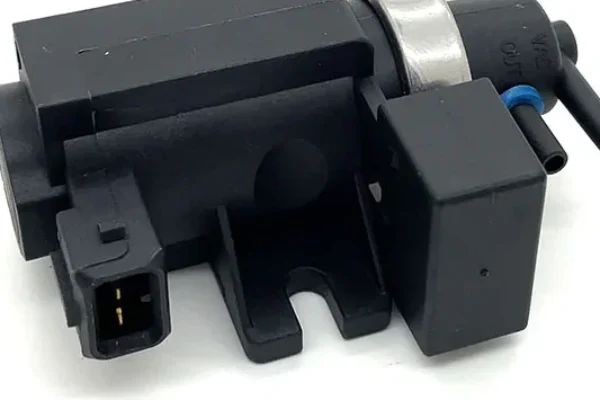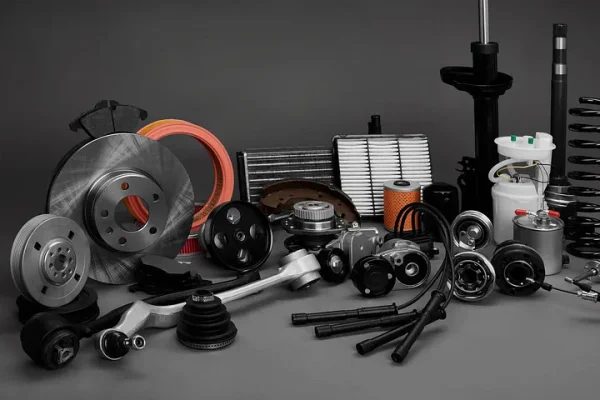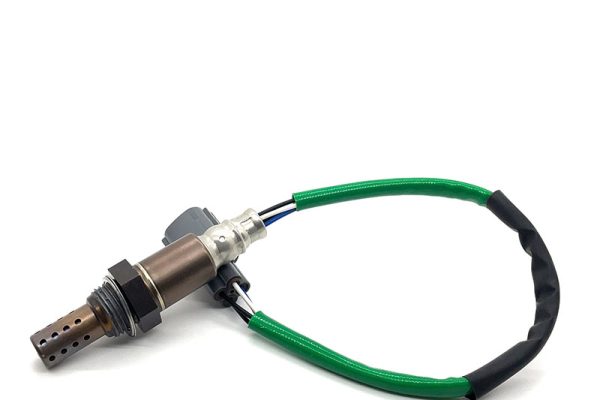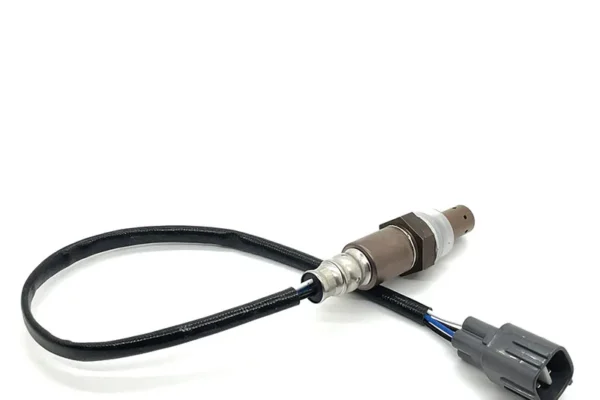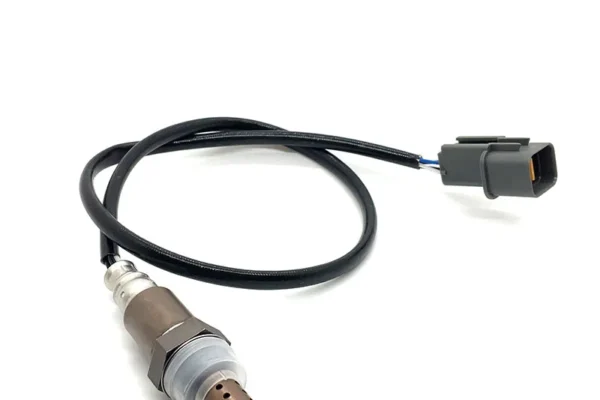Introduction: Why Fuel Pump Assembly Matters for Businesses
Fuel Pump Assembly: B2B Reliability & Trust
In the automotive industry, the fuel pump assembly is more than just another component inside the vehicle’s fuel system. For businesses operating in wholesale auto parts, repair service supply, or fleet management, this unit represents reliability, efficiency, and the foundation of customer trust. When a vehicle fails to deliver consistent performance because of fuel delivery problems, the root cause often lies in a weak or failing fuel pump assembly. For individual drivers, this means inconvenience and repair bills. For B2B buyers, however, it means something much larger—customer dissatisfaction, potential reputational loss, and disruption in the supply chain of spare parts.
Operational Continuity: B2B Reliability, Cost & Supply
The reason fuel pump assemblies matter so much in business-to-business procurement is because they directly affect operational continuity. A distributor or wholesaler cannot afford to stock parts that fail too quickly or do not meet consistent standards. A repair shop that services multiple vehicles daily relies on steady access to dependable fuel pump assemblies to maintain customer satisfaction and reduce callbacks. Likewise, a company managing a fleet of vehicles needs assurance that fuel delivery will not interrupt its logistics or service operations. Every business buyer is ultimately looking for reliability, cost-effectiveness, and supply stability, and the fuel pump assembly sits at the heart of these concerns.
Informed B2B Procurement: Fuel Pump Quality and Relationships
From a B2B perspective, fuel pump assembly procurement is not only about the part itself but also about the relationship with suppliers, the trust built around consistent quality, and the ability to support long-term business growth. This makes it essential to understand what a fuel pump assembly is, how it works, the symptoms of failure, and when replacement becomes unavoidable. By approaching the topic from both a technical and procurement angle, business buyers can make informed choices that serve their clients, strengthen their distribution network, and protect long-term profitability.
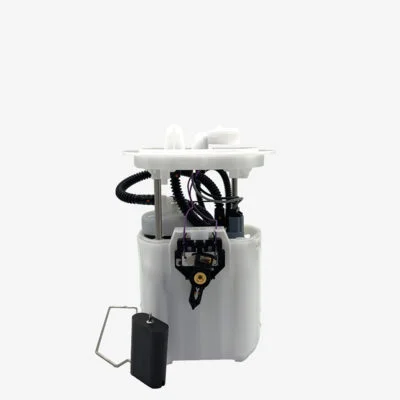
Understanding Fuel Pump Assembly: The Basics for B2B Buyers
Fuel Pump Assembly: Core of Automotive Fuel Delivery
At its core, a fuel pump assembly is the unit responsible for transferring fuel from the tank to the engine at the correct pressure and flow. Without it, combustion cannot occur properly, and the engine’s efficiency is compromised. While the technical mechanism is fairly straightforward, the importance of this component cannot be overstated. For B2B buyers, it represents the cornerstone of automotive fuel system components, forming the backbone of fuel delivery in nearly all modern vehicles.
Fuel Pump Assembly Components & Quality
The assembly itself usually consists of the pump, housing, filter, and associated connectors. Each element has a role in ensuring that fuel moves smoothly and reliably from storage to combustion. In a wholesale context, business buyers do not always need to know the micro-level technical design, but they must understand enough to evaluate quality and performance expectations. A strong fuel pump assembly unit reduces the chances of premature failure, prevents contamination from entering the engine, and ensures that vehicles perform reliably under diverse driving conditions.
B2B Fuel Pump Assembly: Compatibility, Standards & Supply
For wholesalers, distributors, or B2B automotive parts suppliers, the basics of a fuel pump assembly extend beyond functionality. It is also about compatibility with a wide range of vehicles, the assurance that the unit will meet industry standards, and the ability to supply bulk orders without disruption. Fleet operators and service providers often emphasize performance consistency because one faulty unit can create downtime for multiple vehicles, translating directly into lost revenue.
Fuel Pump Assembly: Business Continuity & Reputation
In the world of automotive aftermarket and wholesale procurement, fuel pump assemblies are often evaluated not just by their role in the engine but by how they contribute to business continuity. A high-quality fuel pump assembly means fewer customer complaints, reduced warranty claims, and improved satisfaction for end users. It also allows distributors to maintain a strong reputation as a trusted supplier of reliable fuel system components.
Fuel Pump Assembly: Engineering Solution & Supply Chain Stability
Therefore, for B2B buyers, understanding the basics of a fuel pump assembly means recognizing its dual role—first as an engineering solution to fuel delivery, and second as a critical part of supply chain stability in the automotive aftermarket. Every order placed, every shipment received, and every installation performed depends on this part functioning without failure. For businesses serving diverse vehicle categories, offering solutions like Fuel Pump Assembly For Toyota ensures wider market coverage and customer satisfaction.
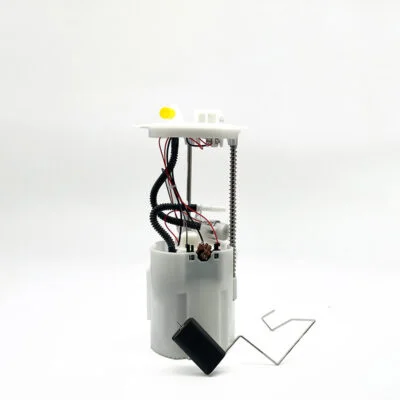
Common Symptoms of a Faulty Fuel Pump Assembly
Identifying Fuel Pump Failure: Business Implications
When a fuel pump assembly begins to fail, the symptoms can vary, but they almost always lead to reduced vehicle performance. For business buyers, understanding these symptoms is not only helpful in identifying faulty parts but also crucial for advising customers, managing inventory, and ensuring that replacement orders are made in a timely manner.
Difficulty Starting: A Key Indicator of Fuel Pump Failure
One of the most common indicators of a failing fuel pump assembly is difficulty starting the vehicle. When the pump is weak, it cannot supply enough pressure to start the engine smoothly, leading to prolonged cranking or multiple attempts before ignition. For repair shops or fleet managers, this symptom is a strong sign that the fuel pump assembly may need inspection or replacement.
Inconsistent Engine Performance: Fuel Pump Assembly Issues
Another typical symptom is inconsistent engine performance. If the vehicle experiences stalling, misfiring, or sudden loss of power, the fuel delivery system is often to blame. In many cases, this points directly to a faulty fuel pump assembly. From a B2B procurement angle, recognizing this pattern is valuable because it allows suppliers and distributors to anticipate demand for replacement parts and stock accordingly.
Reduced Acceleration & Fuel Efficiency: Fuel Pump Assembly
A third common issue is reduced acceleration or poor fuel efficiency. When the fuel pump assembly cannot maintain the required flow, the engine struggles to respond to driver input, especially during acceleration. This not only frustrates end users but also signals to repair professionals that replacement parts must be sourced quickly. B2B buyers who supply these components play an essential role in ensuring that repair facilities have what they need at the right time.
Noise: A Diagnostic Cue for Failing Fuel Pump
Noise can also be a warning sign. While a working fuel pump assembly usually operates quietly, a failing unit may produce a whining or buzzing sound, especially noticeable near the fuel tank. In the B2B context, repair professionals often use this symptom as a diagnostic cue, and distributors must be prepared to fulfill orders promptly once the diagnosis is confirmed.
Bulk Suppliers: Expertise & Problem-Solving Partners
For businesses operating in bulk supply, the ability to recognize and communicate these symptoms to their customers is invaluable. It demonstrates expertise, builds trust, and helps clients identify problems before they escalate. This positions the distributor or wholesaler not only as a supplier of parts but also as a partner in problem-solving within the automotive fuel system industry. Many repair facilities often request specific units such as Fuel Pump Assembly For Ford when addressing performance issues in widely used vehicles.
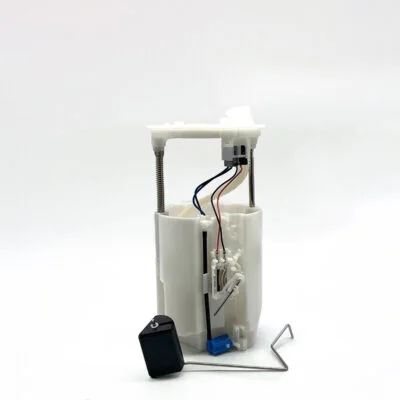
When and Why Replacement Is Necessary
Lifespan & Replacement Decision for Fuel Pump Assembly
Every automotive part has a lifespan, and the fuel pump assembly is no exception. For businesses, the decision to replace this component is not taken lightly, as it involves balancing costs, customer satisfaction, and long-term reliability. Replacement becomes necessary when the symptoms described earlier reach a point where they compromise engine performance, vehicle safety, or operational efficiency.
Timely Replacement: Preventing Chain Reactions
From a B2B perspective, timely replacement is about more than fixing an individual vehicle. It is about preventing a chain reaction of problems that can affect multiple clients, vehicles, or even entire fleets. A faulty fuel pump assembly that goes unreplaced can lead to repeated stalling, engine misfires, or in worst cases, complete engine failure. For distributors, ensuring that replacement parts are available at the right moment helps their clients avoid costly downtime and maintain smooth business operations.
Risk Management: Warranty, Liability & Operations
The necessity of replacement is also tied to risk management. For repair shops, installing a reliable replacement fuel pump assembly means fewer warranty claims and reduced liability. For fleet operators, it means preventing vehicles from breaking down during operations, which could disrupt delivery schedules or passenger services. For wholesalers and B2B suppliers, it represents the opportunity to strengthen long-term customer loyalty by delivering dependable products that solve urgent problems.
Reputation: Proactive vs. Careless
Beyond operational reasons, there is also the issue of reputation. Businesses that delay replacement risk being perceived as unresponsive or careless, both in repair services and in wholesale supply. By contrast, those that recommend or provide timely replacement of faulty fuel pump assemblies are seen as proactive and trustworthy. This reputation value is significant in B2B relationships, where ongoing partnerships often hinge on reliability.
Strategic Replacement: Inventory & Relationships
Ultimately, replacement is not merely a technical step but a strategic decision. For B2B buyers, having access to consistent, high-quality fuel pump assemblies ensures that they can meet customer needs promptly. It also allows them to manage inventory more effectively, reduce emergency orders, and forecast demand with greater accuracy. Whether the client is a single repair shop, a regional distributor, or a fleet operator, the replacement of a fuel pump assembly is an opportunity to provide value and reinforce the business relationship.
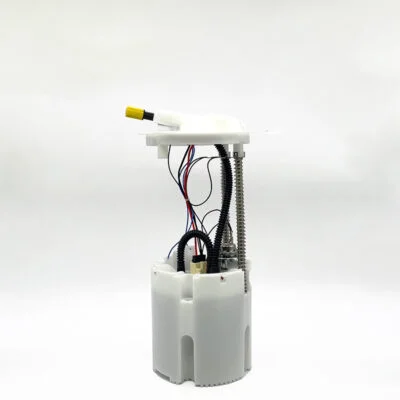
Choosing the Right Fuel Pump Assembly for Your Business Needs
Strategic Business Decision for B2B Buyers
Selecting the right fuel pump assembly is not only a technical choice but also a strategic business decision for B2B buyers. In a competitive automotive aftermarket, the ability to identify parts that deliver consistent performance directly impacts business growth, customer retention, and long-term profitability. For wholesalers, distributors, and fleet managers, choosing the right unit means more than ensuring that a vehicle runs smoothly. It means securing a reliable product line that reduces customer complaints, prevents downtime, and enhances the reputation of the supplier.
Quality: Impact on Business Growth and Reputation
One of the primary considerations for B2B procurement is quality. A high-quality fuel pump assembly not only ensures stable fuel delivery but also minimizes the risk of premature failures. For repair shops and fleet operators, this translates into fewer returns, fewer replacements under warranty, and greater trust in the supplier. In wholesale distribution, it means stronger customer relationships and reduced risk of reputational damage. B2B buyers know that each component sold reflects directly on their brand value, which makes selecting the right fuel pump assembly a critical part of their business strategy.
Compatibility: Broad Applications and Inventory Management
Another important factor is compatibility. In a global market, automotive applications vary widely, and businesses must be prepared to source parts that meet the requirements of different vehicle categories. Having access to a fuel pump assembly line that covers a broad range of applications allows distributors to expand their client base and ensures that repair shops can service diverse fleets without delay. Compatibility also reduces the need for emergency orders and helps buyers manage inventory more efficiently.
Reliability: Key to B2B Trust and Efficiency
Reliability is equally significant. In B2B contexts, a reliable fuel pump assembly is not measured only by its function but by the peace of mind it offers to the businesses that depend on it. Fleet operators, for instance, require parts that can withstand constant use without unexpected breakdowns. Distributors need assemblies that they can confidently supply in bulk without fear of high failure rates. In this sense, reliability becomes a key differentiator between average suppliers and trusted partners.
Procurement Considerations: Supply Chain and Support
Beyond the technical attributes, B2B buyers must also weigh broader procurement considerations such as supply chain stability, after-sales support, and the ability of a supplier to handle bulk orders. A fuel pump assembly that checks all the boxes technically is only as valuable as the consistency with which it can be supplied. For large-scale operations, continuity of supply is just as important as the quality of the part itself.
Aligning Technical Functionality with Business Priorities
Choosing the right fuel pump assembly is therefore about aligning technical functionality with business priorities. For distributors, wholesalers, and other B2B buyers, this means looking at the product not only as a component of the automotive fuel system but as a tool for building competitive advantage in the marketplace.
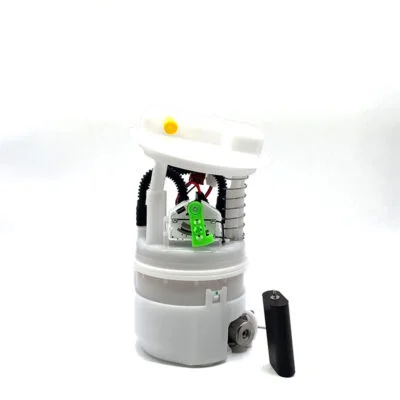
Buying Tips for B2B Procurement
Structured Approach to B2B Fuel Pump Assembly Procurement
The procurement of fuel pump assemblies in the B2B automotive sector requires more than simply identifying a product and placing an order. For buyers in wholesale distribution, fleet management, or repair services, success depends on a structured approach that balances quality, supply reliability, and business value. To make informed decisions, B2B buyers should consider several key tips that can streamline procurement and ensure long-term profitability.
Evaluate Supplier Credibility for Long-Term Reliability
First, evaluate supplier credibility carefully. A trusted supplier of fuel pump assemblies is one who not only provides quality products but also demonstrates transparency in operations, consistency in delivery, and responsiveness in communication. In B2B transactions, reliability is often judged less by a single sale and more by the ability to sustain dependable service over years of partnership. By selecting suppliers with proven track records, buyers reduce the risk of stock shortages, faulty parts, and delays that can disrupt business operations.
Bulk Purchasing: Economies of Scale and Inventory Management
Second, consider the importance of bulk purchasing. For B2B buyers, economies of scale play a crucial role in maintaining profitability. Ordering fuel pump assemblies in bulk reduces per-unit costs and allows businesses to maintain sufficient stock for urgent replacements. More importantly, bulk procurement strengthens negotiation power with suppliers, often resulting in more favorable terms and improved after-sales support. Distributors who strategically manage inventory through bulk orders are also better positioned to respond quickly to customer needs, reinforcing their reputation as reliable partners in the automotive aftermarket.
Prioritize After-Sales Service for Customer Support
Third, prioritize after-sales service. Fuel pump assemblies are integral components, and issues can arise even with the best-quality units. A supplier that offers clear warranty terms, responsive customer support, and assistance with returns or replacements is far more valuable to B2B buyers than one that focuses only on selling. In this sense, after-sales service is not just an add-on but an essential part of the procurement process. For distributors and wholesalers, being able to rely on supplier support allows them to protect their own relationships with customers.
Assess Supply Chain Stability to Avoid Shortages
Fourth, assess supply chain stability. Inconsistent supply chains can lead to shortages that damage a business’s reputation and erode client trust. Before committing to a supplier, B2B buyers should evaluate the supplier’s ability to maintain inventory levels, fulfill large orders, and handle unexpected surges in demand. A stable supply chain ensures that fuel pump assembly orders arrive on time, minimizing disruptions and helping businesses plan for growth.
Build Long-Term Supplier Relationships for Growth
Finally, build relationships, not transactions. In B2B procurement, the most successful buyers view their suppliers not simply as vendors but as partners. Establishing long-term relationships fosters mutual trust, smoother communication, and more flexibility in meeting business needs. A supplier who views the buyer as a valued partner is more likely to provide insights into new product lines, offer priority access to stock, and deliver personalized support.
Strategic Procurement for Long-Term Business Success
These buying tips collectively help B2B buyers minimize risk, maximize value, and create a stable foundation for long-term growth. In a market where the fuel pump assembly is both a technical necessity and a business opportunity, strategic procurement decisions separate businesses that merely survive from those that thrive.
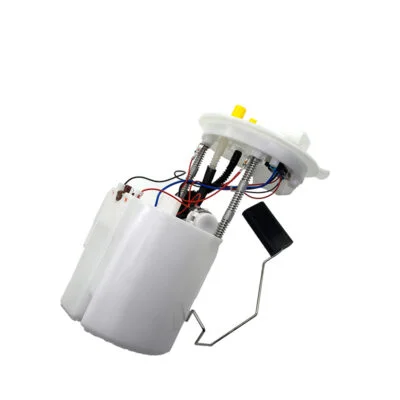
Benefits of Partnering with a Trusted Fuel Pump Assembly Supplier
Benefits of Partnering with a Reliable Manufacturer
Choosing to work directly with a reliable Auto Parts Manufacturer provides B2B buyers with greater consistency, better pricing, and stronger supply chain confidence. For B2B buyers, choosing a trusted supplier of fuel pump assemblies delivers benefits that go far beyond the immediate purchase. The right partnership transforms procurement from a transactional necessity into a long-term strategic advantage. Businesses that align themselves with reliable suppliers consistently outperform those that rely on uncertain or inconsistent sources.
Consistent Quality: Reducing Risk and Enhancing Reputation
One of the key benefits is consistent quality. A trusted supplier ensures that every fuel pump assembly delivered meets the required standards, reducing the risk of returns or failures. This consistency allows repair shops to maintain high service levels, distributors to uphold strong reputations, and fleet operators to keep vehicles running without interruption. By working with a dependable supplier, B2B buyers eliminate one of the most common risks in the aftermarket: the variability of product quality.
Supply Continuity: Meeting Deadlines and Avoiding Stockouts
Another benefit is supply continuity. Trusted suppliers understand the importance of meeting deadlines and delivering bulk orders without delay. They maintain stable inventory levels, anticipate market demand, and adjust production or sourcing accordingly. For B2B buyers, this translates into fewer stockouts, fewer emergency orders, and the ability to plan operations with confidence. Supply continuity is especially valuable in industries where downtime can lead to substantial financial losses, such as logistics or passenger transport.
Cost Efficiency: Long-Term Savings and Profitability
Cost efficiency also improves when working with trusted suppliers. While the initial price per unit is important, the true value lies in reduced risks, fewer warranty claims, and stronger customer loyalty. Reliable suppliers help buyers avoid hidden costs associated with product failures or delayed shipments. Over time, these savings contribute significantly to business profitability.
Business Growth: Market Insights and New Opportunities
A trusted supplier also acts as a business partner in growth. By sharing market insights, offering recommendations, and introducing buyers to new product developments, the supplier strengthens the buyer’s competitive position. This level of collaboration is particularly valuable for distributors seeking to expand into new markets or repair facilities aiming to diversify their service offerings.
Enhanced Credibility: Trust and Repeat Business
In addition, partnering with a reliable fuel pump assembly supplier enhances credibility in the eyes of clients. Businesses that consistently deliver high-quality, dependable products earn trust and repeat business from their customers. In B2B environments, reputation is often the deciding factor between winning or losing large accounts, and working with a trusted supplier provides a solid foundation for maintaining that reputation.
Long-Term Value: Sustainable Success in the Aftermarket
The benefits of such partnerships are both immediate and long-term. From securing consistent quality and reliable supply to enhancing credibility and supporting growth, trusted suppliers create value that extends across every stage of the supply chain. For B2B buyers, the decision to invest in such partnerships is not only practical but essential for sustainable success in the automotive aftermarket.
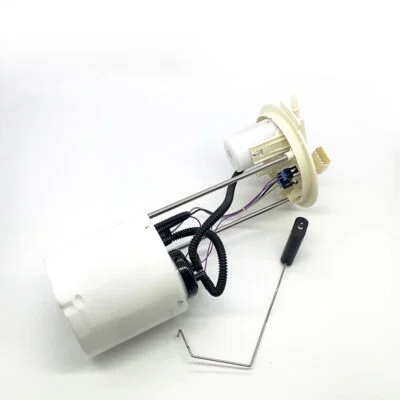
Conclusion: Building Long-Term Value in B2B Fuel Pump Assembly Procurement
The journey of sourcing, purchasing, and supplying fuel pump assemblies is far more complex than simply moving parts through the automotive supply chain. For B2B buyers, it represents a series of strategic choices that determine the strength of business relationships, the reliability of operations, and the satisfaction of end customers. From understanding the role of the fuel pump assembly to recognizing failure symptoms and planning timely replacements, every step reinforces the importance of making informed, business-focused decisions.
Choosing the right fuel pump assembly is not just about technical compatibility. It is about aligning procurement with broader goals such as efficiency, risk management, and long-term profitability. The buying tips outlined earlier demonstrate that successful procurement requires careful evaluation of suppliers, attention to after-sales service, and commitment to building partnerships rather than short-term transactions. These strategies not only secure reliable components but also build a resilient foundation for future growth.
The benefits of working with trusted suppliers cannot be overstated. They provide the consistent quality, dependable supply, and collaborative support that businesses need to thrive in a competitive marketplace. More importantly, they allow B2B buyers to focus on their own customers with confidence, knowing that the backbone of their fuel system components—the fuel pump assembly—is dependable and secure.
Ultimately, the value of fuel pump assembly procurement lies not in a single sale but in the long-term trust and stability that businesses build with their partners. For wholesalers, distributors, and fleet managers, every decision made in sourcing this critical component contributes to customer satisfaction, brand reputation, and operational continuity. By prioritizing reliability, cultivating strong supplier relationships, and approaching procurement strategically, B2B buyers position themselves to lead in the automotive aftermarket and create lasting value in the fuel system supply chain.

